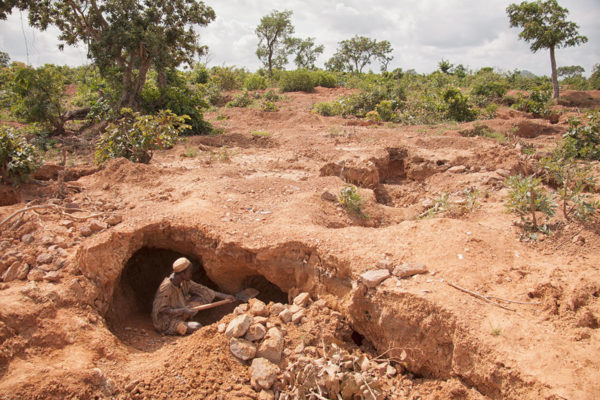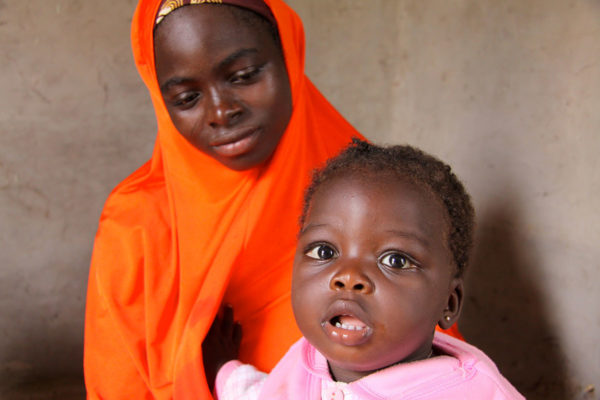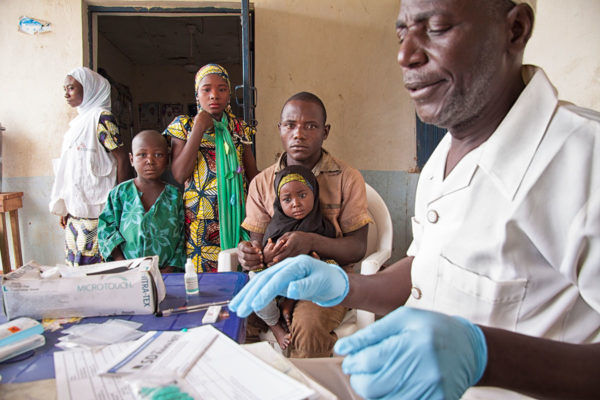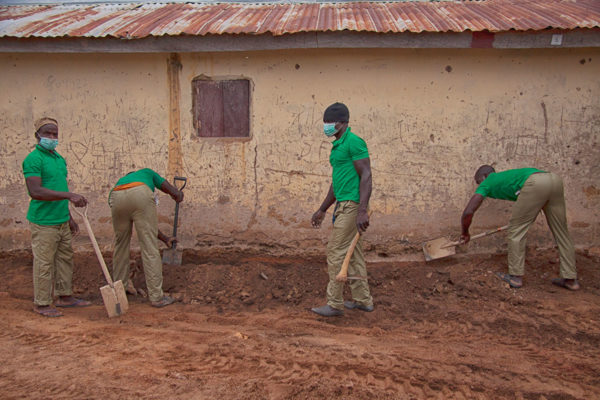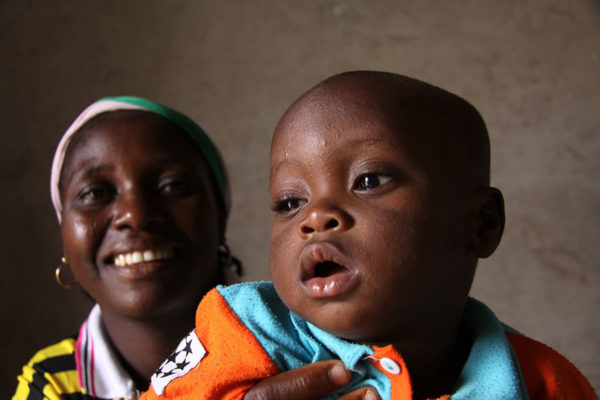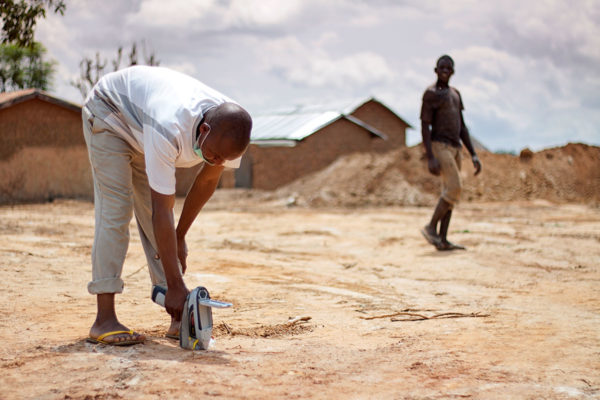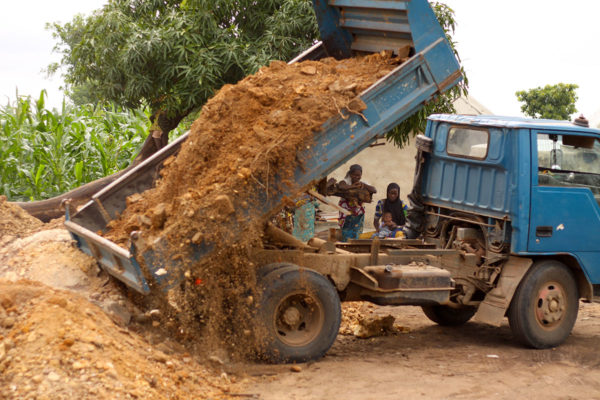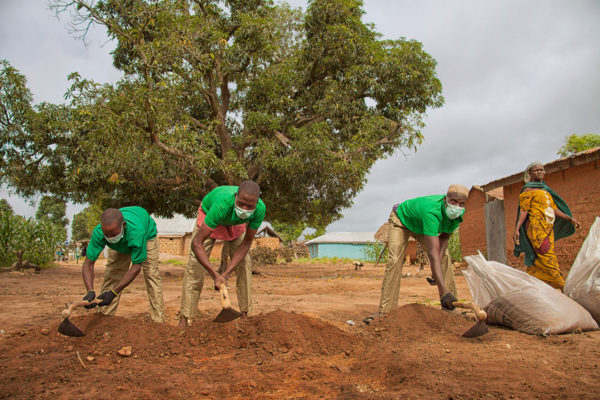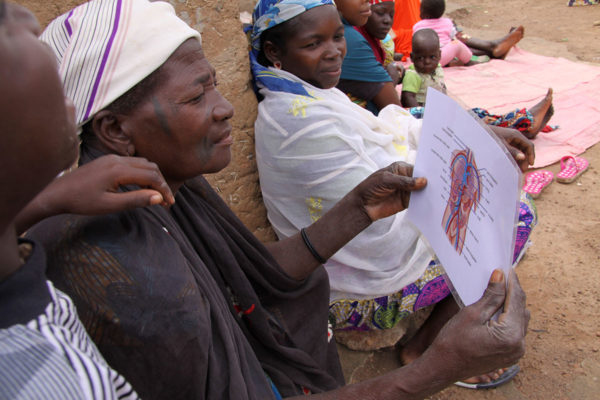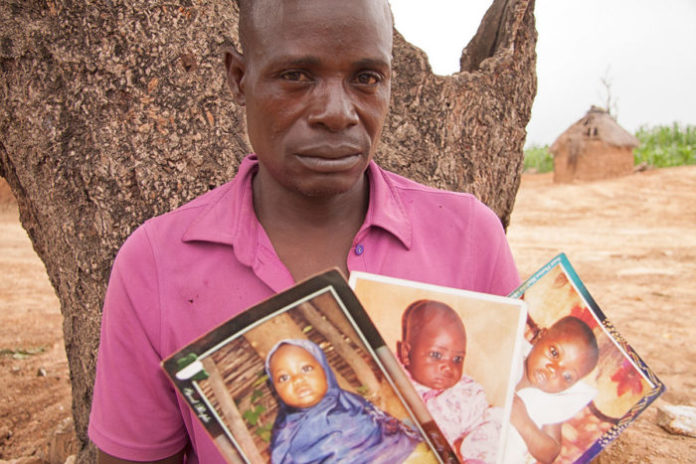
This story is synonymous with what happened in the city of Flint, Michigan, this year; lead leaked into the water system of the entire city, exposing residents of the city to the dangerous element.
According to the World Health Organization, lead can have serious consequences for the health of children. At high levels of exposure, lead attacks the brain and central nervous system, causing coma, convulsions and even death. It is said children who survive severe lead poisoning may be left with mental retardation and behavioral disorders. In adults, the element can stay in the body for decades, capable of passing through the placenta of women to an unborn child.
What happened in the United States sparked an outraged across the country. Residents demanded state and city officials resign from their posts for their role in the poisoning.

Far away from the United States, in Africa, a population of over 3,000 citizens has also been exposed to lead. Nigeria is Africa’s most populous nation. It is rich in natural resources, including precious metals such as gold.
Due to hundreds of years of western exploitation, coupled with successive government corruption, the majority of the population lives in poverty, despite the abundance of natural resources.
In rural areas, the youth has resorted to illegal mining to make a living. There are no jobs in such areas, allowing residents to engage in anything that will bring a little food to their tables.
Lead forms minerals that don’t sink into the Earth’s core, staying above, on the Earth’s crust. Lead’s abundance in the Earth’s crust is said to be about 16 ppm, causing lead to mix with some precious metals, such as gold.
The current outbreak of lead poisoning in Nigeria is in Niger State. Between April and May 2015, 28 children mysteriously died a few days after suffering symptoms of convulsions, insomnia and hallucinations. This happened in the villages of Kawo and Magiro, both in Niger State.
According to the international health charity, Doctors Without Borders (MSF), the children in Niger State had died because of extremely high levels of lead in their bodies. MSF has since been working to contain the poisoning in the villages. MSF revealed it was first contacted by the Nigerian authorities to help deal with lead poisoning in Zamfara State, back in 2010. MSF claimed lead poisoning has killed at least 400 residents in Zamfara alone, with many of the dead being children. Children are vulnerable to the element because they easily ingest contaminated soil or objects.
Dr Simba Tirima, an environmental researcher who has followed the situation closely over the past six years, explained how the outbreak resulted from unregulated rudimentary processing of lead-rich gold ores in the villages. The gold miners in the villages grind rocks they dig up, in order to separate the gold, and the resulting dust containing high levels of lead then settles on soil and other nearby surfaces, exposing the locals to the poison.
MSF has contained what happened in Zamfara in 2010. However, Dr Tirima said the miners in Niger State have encountered the same lead-rich gold found in Zamfara. It is estimated that over 3,000 residents of the two villages in Niger State have been exposed to the lead poisoning.
Local humanitarian organizations are currently helping MSF to contain the outbreak. In villages where the illegal mining takes place, machines for testing whether the soil is clean or not, has been deployed. Experts use this technology to detect the presence of lead.
When lead is detected, the affected village’s entire surface soil would have to be removed and refilled with clean soil. There is no alternative to the tedious task, with no other alternative to saving lives.
MSF have also launched an education campaign for the locals, educating them on how to prevent their children from coming into contact with contaminated objects. Hopefully, these measures will help prevent future outbreaks.
We credit Al Jazeera for the story and the photos.
This article (Lead Poisoning Rocks Nigerian Villages, Over 3,000 People Exposed [Photos]) is a free and open source. You have permission to republish this article under a Creative Commons license with attribution to the author and AnonHQ.com.
Supporting Anonymous’ Independent & Investigative News is important to us. Please, follow us on Twitter: Follow @AnonymousNewsHQ



